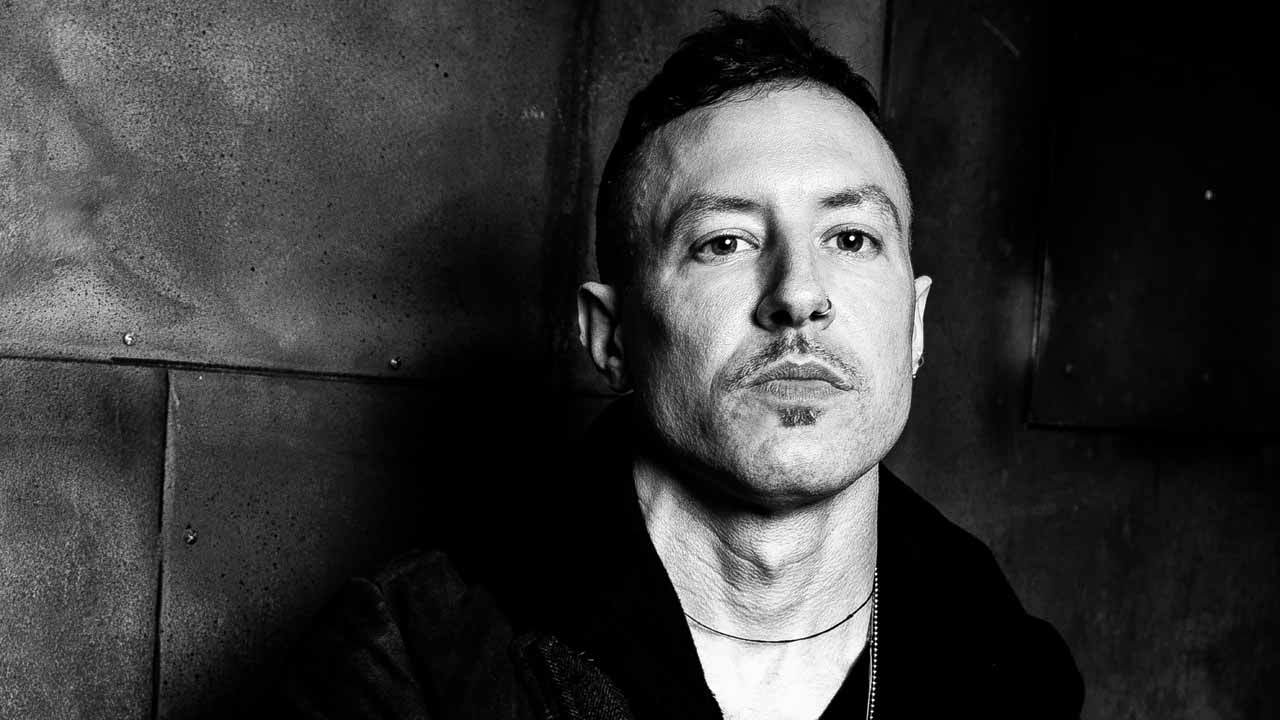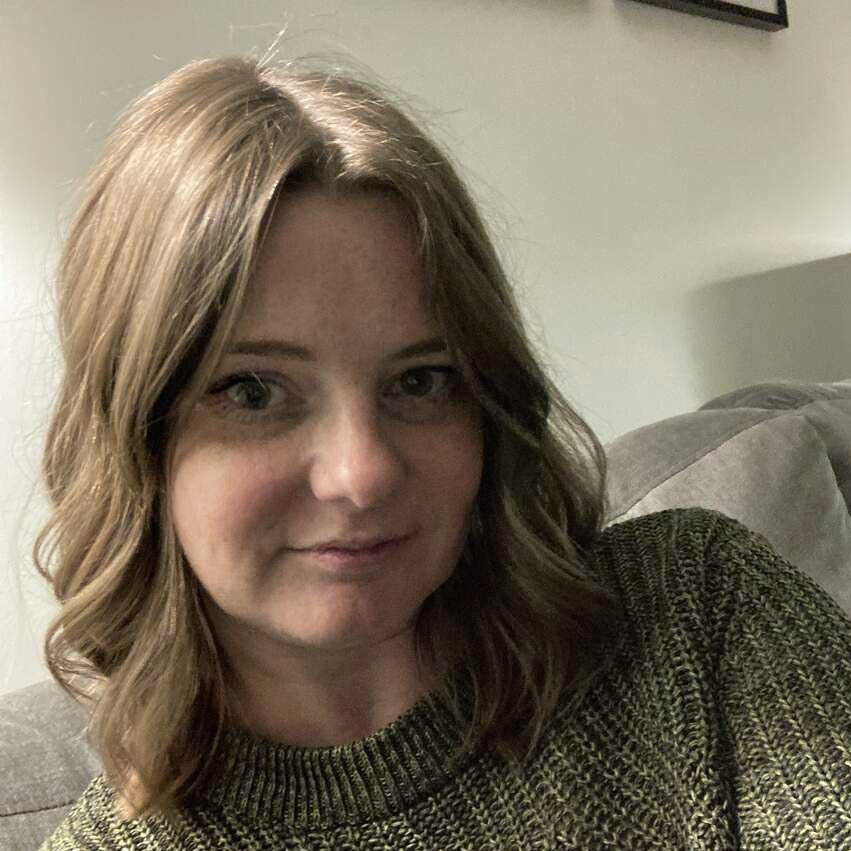It’s 11pm local time when we call Greg Puciato at his LA home, and he’s just reaching the peak part of his day. A dedicated night owl, years of intense touring – first with The Dillinger Escape Plan and latterly with electronic project The Black Queen and metal supergroup Killer Be Killed – have set his body clock around stage times. So while the rest of the city sleeps, he’s at his most creative as the minutes inch into the next morning. But since lockdown hit, having just finished wringing every drop of inspiration from his life for his debut solo album Child Soldier: Creator Of God, an unusual stillness has settled over his house, an inward zen while the world outside has gone insane.
“I get my energy from being by myself,” he says. “I’m an only child, I can spend a lot of time doing nothing. I love to do nothing, it’s my favourite thing in the world. And I mean true nothing. Not watching TV, not playing videogames, not accomplishing anything, just passing time doing nothing. So for me quarantine is not that big of a deal.”
- How The Dillinger Escape Plan changed metal
- The 100 greatest metal albums of the 21st century
- Metallica albums ranked from worst to best
- 10 essential alt-metal albums
Greg seems to be in a really good place in 2020. He certainly went through the wringer three or four years back, as Dillinger came to an end. Their final-ever UK festival appearance, at Download 2017, was a towering moment of catharsis and celebration for the audience, the band seemingly on the form of their lives as they tore the place – and themselves – apart. But in order to even get onto the stage, their frontman had to take four Xanax before his anxiety could even begin to come under control. He was suffering such a huge panic attack, he says; he genuinely thought he was having a heart attack and was about to die.
“Having the thing that was a major part of my identity ending during that same time obviously didn’t help,” he says. “The stress of it ending and the stress of having to drag the dying corpse of it across the world for a couple of years was not healthy. But then at some point, around early 2018, it just started to fade away. It just started to dissipate, and I just thought, ‘I’m through it.’ I got to the other side of it. And now I feel great. It’s fucking weird.”
Things had to get worse before they got better, though. After those final Dillinger shows Greg’s depression got the better of him, exacerbated by self- medication and denial. “When it comes to anxiety and depression, I think that’s all stuff that you haven’t allowed yourself to process,” he continues. “I held off a lot of things for a long time that started to become unavoidable, and when they all started to hit me I wasn’t prepared for it. The only thing I could be grateful for was I had creative outlets to be able to get through it. But I was drinking really heavily, doing tons of drugs, cocaine, I was partying a lot. I was numbing myself and avoiding having to deal with all this shit, and it fucked me up for a few years. I was like a different person; for three or four years I didn’t even recognise myself, I thought I was gone. I was just this wreck of a person. But at some point you just process it and you’re through it. I had a shit-ton of output during that time, I had a lot of shows, a lot of therapy, you just get through it somehow.”

His eventual steps towards recovery in 2018 coincided with the second Black Queen album, Infinite Games, which became a foundation stone for this year’s solo album. Greg admits that releasing something so vastly different to Dillinger, without knowing how people would react, was scary, but doing so gave him the confidence to put every different side of his personality out there on Child Soldier, an album in a true sense, intended to be listened to in its entirety. Released on Federal Prisoner, the label he set up with his friend, the visual artist Jesse Draxler, it finds Greg playing all of the instruments bar the drums, which he handed over to Chris Hornbrook of Poison The Well, former Dillinger sticksman Chris Pennie, and Killer Be Killed bandmate and Converge man Ben Koller.
“I’m such a control freak I thought about trying to learn how to play drums,” he says. “I had to talk myself out of it, like, ‘Dude, you’re going too far. In three months are you really going to be as good as these guys who’ve been playing drums their whole life? Stop it, get out of here, don’t be an idiot.’”
Fittingly, for such a deeply personal project, the themes of freedom and breaking ties come up throughout the record. Greg is evasive when it comes to picking apart individual lyrics, not wanting to reveal the true stories of real people in his life. But he does put its appeal down to his lack of filter while writing.
“I don’t really decide what a song is going to be about before I write it, and for me it’s more like therapy, journalling, and trying to be open enough that I can let whatever needs to come out of me come out,” he says. “Because if you do that, you’re going to be honest, and if you’re honest people will relate to you sharing a real piece of yourself with them. So to do that you have to sort of let go of the wheel and see where the car goes.”
Part of that honesty ties in with giving the project his own real name rather than a moniker, something his friend Jerry Cantrell convinced him was the right move. Now, Greg says, he’s free to keep growing and evolving as an artist. “It’s ownership, integration, control, freedom,” he adds. “Stylistically, emotionally, you can go wherever you want with it.”
Before Jerry’s intervention, Child Soldier was set to be the name of the band rather than the title of the album. It came, says Greg, through the process of recovering from his own troubles, and reaching strength on the other side.
“Child Soldier came from having to work through things,” he says. “Creative people are emotionally sensitive, they’ve worked through something. You absorb things differently. You have to learn how to live in an insensitive world as a sensitive person, and that’s the ‘Child Soldier’ bit. And the ‘Creator Of God’ element is saying if you make it through that, then you can create your universe. You’re God and you created yourself, and we’re creating our existence in real time. It’s a big collective hallucination, we’re imagining our existences into reality. You make it through the struggle and you can be whatever you want, there’s no limits to it.”
This is, then, a progressive album in the most literal sense. The music has evolved, become even more complex and unpredictable, as its creator gained a deeper understanding of who he is. Fragility, here, is not weakness, it’s something to be celebrated – finding strength in accepting your true nature. Honesty, it seems, is not just the best policy – it’s essential for a happier life.
“I turned 40 this year, and this whole year for me is about integration and owning every part of me,” Greg says, ready to head off into another still and silent LA night. “And I feel like this record is a symbol of that. It’s mirroring something that’s going on in my personal life where I do feel like completely fine and at ease with who I am. Here it is, here I am, deal with it, don’t deal with it, I don’t care. It took a long time to get to that point.”

